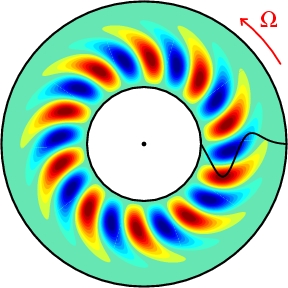Spatio-temporal organization of replication : On genome evolution and large-scale chromatin folding
Alain ARNEODO
Laboratoire de Physique, ENS Lyon
In higher eukaryotes, the absence of specific sequence motifs marking the origins of replication has been a serious hindrance to the understanding of the mechanisms that regulate the initiation and the maintenance of the replication program in different cell types. Here we report on an in silico multi-scale analysis of nucleotide compositional skew that predicts the existence, in the germline, of replication N-domains bordered by (more than 1000) putative replication origins and where the skew decreases rather linearly as the signature of a progressive inversion of the average replication fork polarity. From the demonstration that the average fork polarity can be directly extracted from the derivative of experimentally available replication timing profiles, we develop a wavelet-based pattern recognition methodology to delineate replication U-domains where the replication timing profile is shaped as a U and its derivative as a N. Replication U-domains are robustly found in seven cell lines as covering a significant portion (40-50%) of the human genome. The early replication initiation zones at U-domains borders are found to be hypersensitive to DNase I cleavage, to be associated with transcriptional activity and to present a significant enrichment in insular-binding proteins CTCF, the hallmark of an open chromatin structure. A comparative analysis of genome-wide chromatin interaction (HiC) data shows that replication U-domains correspond to self-interacting structural high-order chromatin units of megabase characteristic size (chromatin loops, rosette-like structures). Taken together, these findings provide evidence that the epigenetic compartmentalization of the human genome into autonomous replication U-domains comes along with an extensive remodelling of the three-dimensional chromosome architecture during development or in specific diseases.
IMAGES

Onde de Rossby thermique (plus de détails...)
CONFÉRENCES
2nd European Fluid Dynamics Conference, Dublin, Ireland, 26 Août 2025